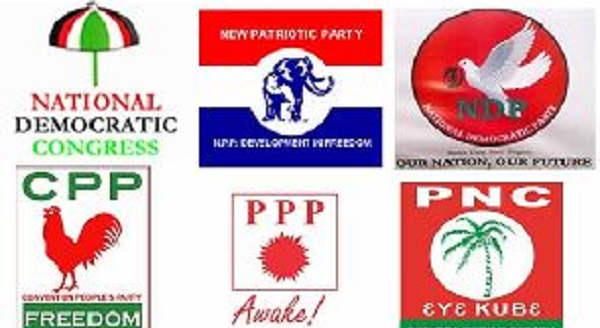
Bringing sanity into political party financing
One of the major challenges confronting Ghana’s democracy has been and remains political party financing.
It has been so because the cost keeps increasing each election year.
In a post-2020 election survey by the Ghana Centre for Democratic Development (CDD-Ghana), it was revealed that standing for presidential elections in Ghana cost a whopping US$100 million, while parliamentary elections cost at least US$ 693,000.
Sadly, a significant portion of the amounts is reportedly spent on the buying of votes, and this continues to undermine Ghana’s multiparty democracy.
Indeed, the situation has given cause for some governance experts to call for political party financing reforms to help sustain our democracy.
As the Director of Advocacy and Policy Engagement at the Ghana Centre for Democratic Development (CDD-Ghana), Dr Kojo Pumpuni Asante, said in an interview with the Daily Graphic (refer to Daily Graphic, February 26, 2022; Page 17), the current situation showed that the country was nurturing a bad political culture as in the “Godfather” model.
His argument is that if financiers begin to sponsor candidates at the lower level, it would probably continue at the constituency, regional and national level. The reforms will, therefore, protect the country’s democracy from falling into the hands of few financiers and also save the country’s democracy from the brink of collapse.
The Daily Graphic agrees that the burden on candidates and political parties to raise funds for electioneering, especially opposition parties, will make them turn to looking for sponsorship. The cost implications will end up being huge on our body politic because it can be a major cause of corruption and also introduce a lot of illicit activities in the country.
It is in this vein that we suggest that all stakeholders – government, parliament, civil society organisations and donors – need to engage to help find a middle way to address the challenges of political party financing.
There have been proposals in the past for state financing of political parties but there has never been any agreement on the module to use. We are aware that other key stakeholders have also kicked against state financing of political parties because it will give room for the mushrooming of political parties and will possibly turn out to be a business for some individuals.
We believe that if all the stakeholders meet to discuss the various modules, including access to media and outlining rules and regulations on political party financing, we will be getting somewhere as a nation.
The Daily Graphic believes that setting up a watchdog group to police political party financing and demanding accountability from the parties can also go a long way to address any problems associated with political party financing.
It is also argued that state funding will provide an even level playing field for all the political parties and reduce special interest influence. For proponents of state funding of political parties, it will help limit financing of political parties by individuals and interest groups that often lead to a culture of corruption and favouritism in the governance system.
Others have also argued that going on that path is dangerous because there are much more pressing social needs such as basic education and health care to be addressed.
Some have also advocated the establishment of a Democracy Fund where dedicated resources will be made available.
While we put the focus on our political parties, we also think that the National Commission for Civic Education (NCCE) must also intensify its education on changing the mindset of the people on the demands on politicians for their personal gain. Any such demands by the people should seek to improve services in their communities.
The Daily Graphic conceives that it is high time we put our shoulders to the wheel to resolve the financing challenges confronting our electioneering.
Per our electoral laws, parties are required to disclose their sources of funding, but how many of them do it and how do they do it?
The Daily Graphic, therefore, trusts that we must revisit our laws and do more consultations to address the problems so as to safeguard our democracy from illicit financiers who may end up destroying it.
